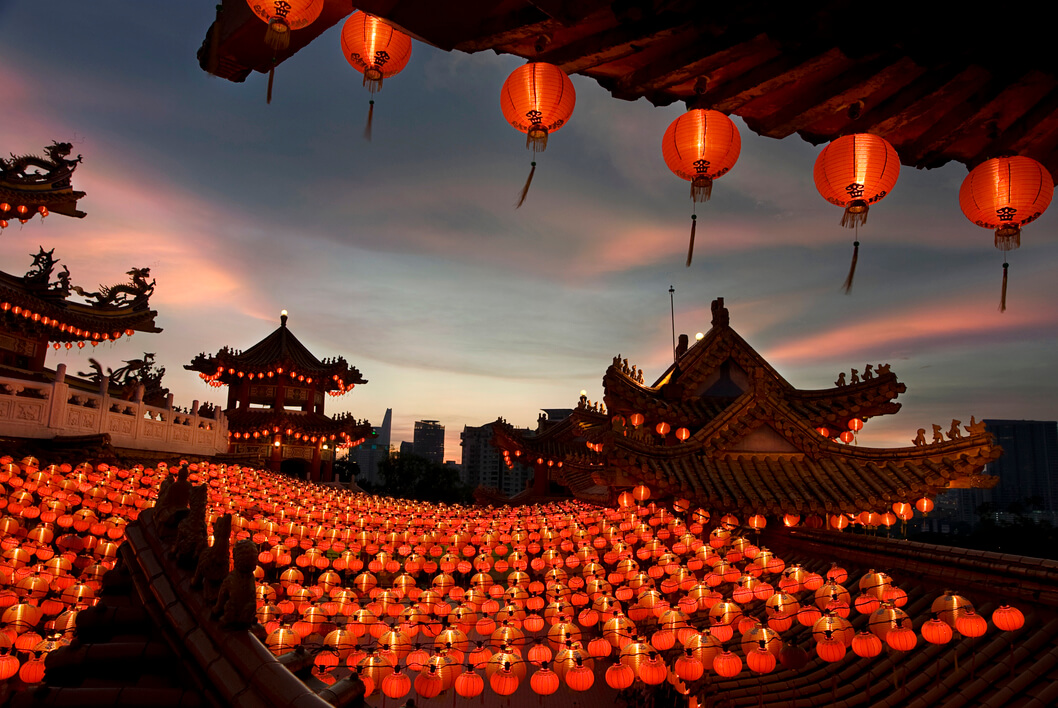Gong hei fat choy!
From China to Melbourne, via Indonesia, with love.
As Melbourne erupts with a fifteen-day festival to celebrate Chinese New Year, one of the people gravitating into Melbourne’s China Town is Spectrum team member Jiayin. During this time, Jiayin celebrates with a big meal with friends, her cousins, and every year, except this one, with her Mum.
Melbourne’s celebrations are known to be some of the most colorful in the world. “In many ways the celebrations here in Melbourne display an even stronger authenticity than some of those in China. Every year the Dragon dances its way through the city and it is a very special and exciting occasion”, reports Jiayin, who came to Australia when she was 23, just 6 years ago.
As you wander the suburbs of Melbourne, you will see red couplets decorating the doors of observant families, warding off evil. Because the purpose of the Spring Festival was to scare off the evil spirit of Nian and prevent it from returning, the holiday decorations are typically a bright and loud red.
The cheerful yellow chrysanthemums that pop up everywhere, nod in approval of the festivities. These vibrant blooms hold auspicious meaning at Chinese New Year – they symbolise perfection, optimism and joy. You also see mandarin plants (kumquats) alongside front doors to welcome guests. The Chinese word for mandarin—kam—sounds similar to the word for “gold.” So, having mandarin oranges around the home at New Year is said to bring riches into your life. A visit to the flower market is considered an absolute “must-do”, before New Year.
For Jiayin, Chinese New Year in Melbourne brings back memories of her childhood. As a child, it was such a thrilling time, a riot of color, of family, and fireworks. Born in Shenzhen, Jiayin recalls how each year, as a young child her family would make the 3-hour trip back to the small rural village her Grandparents called home. That sense of home runs long and deep in rural China – Jiayin’s father was actually born in Indonesia; the family moved back “home” when he was 3, and it was not until after graduation that he moved to the city, and into Shenzhen, where he went on to raise his own family, including Jiayin. “Going home” is part of the rituals for New Year, with the whole of China, slowing, and making time, for journey’s home.
For Jiayin, “going home” meant enjoying traditional “Huo Guo”, which loosely translates to Australian as, “hot pot”. As Jiayin describes the process of making this broth, you can almost imagine her 3-year-old self perched on a kitchen stool, helping her grandmother add the ingredients in their specific order to the steaming pot – meat first, followed by the vegies, and then the rice.
“It’s like Christmas!” says Jiayin, “the children are terribly spoiled” she says with a cheeky grin, reminiscent of her child self! “There is new clothes of course, however the kids especially love the tradition that the older generation give to the next. At this special time of the year, the gift comes in the form of “lucky money”, and is given in a red envelope with gold inscription. It takes all your will power not to open it in front of the giver – that would be rude!”
Chinese New Year is traditionally set according to the lunar calendar, and so is also known as the Spring Festival or the Lunar New Year. The 15th day marks the first full moon after the Spring Festival and of the New Year, also known as yuán xiāo jié meaning “first night of the full moon”. The day is also known as Lantern Festival day. Another reunion dinner is held with lanterns and oranges being a large part of the celebrations. Jiayin recalls her grandmother retelling the Chinese proverb “You can hide from the 1st but not from the 15th”, as a way of reminding the next generation, that it is time to clear the past and begin again afresh.
This pragmatism has perhaps also enabled Jiayin’s family to embrace their own diversity and expand horizons too. Jiayin’s parents separated when she was just 4, and both her parents remarried. Her great-grandparents passed away, and with time, their memorial was moved to Shenzen. Home becomes a place in the heart, living close to where memory and subconscious begins.
And so the rituals and traditions evolve again. Perhaps too, it is the elasticity of the heart that means that even when you find yourself meandering the streets of Melbourne at Chinese New Year, home is with you.
Wishing Jiayin, and all our team, and clients who are celebrating, Gong hei fat choy!

